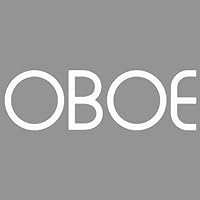In recent years, the lines between gaming and professional tasks have blurred, leading to the rise in popularity of gaming laptops for various applications. Programming, being a resource-intensive task, can benefit from the powerful hardware and enhanced graphics capabilities of gaming laptops. However, using a gaming laptop for programming comes with its own set of advantages and disadvantages that programmers should consider before making a choice.
Some Pros of Using a Gaming Laptop for Programming :
Powerful Hardware for Resource-Intensive Tasks
Gaming laptops are built with high-performance components, including powerful processors, ample RAM, and fast storage options. These specifications are well-suited for running resource-intensive programming tasks, such as compiling large codebases, running virtual machines, or handling complex simulations.
Enhanced Graphics Performance
While programming may not heavily rely on graphics processing, certain tasks like game development or graphics-intensive applications can benefit from a gaming laptop’s dedicated graphics card. The enhanced graphics performance allows for smoother rendering, faster compilation of graphical assets, and a more immersive coding experience.
Versatility for Work and Play
One of the advantages of using a gaming laptop for programming is its versatility. These laptops are designed to handle demanding gaming requirements, but they can also excel at handling everyday productivity tasks. With a gaming laptop, programmers can switch between work and leisure activities seamlessly, enjoying high-performance gaming during leisure hours.
High-Quality Displays for Coding and Design
Gaming laptops often feature high-quality displays with high resolutions, wide color gamuts, and excellent contrast ratios. These features are beneficial for programmers who work with code editors, design tools, or graphical user interfaces. The sharp and vibrant displays allow for accurate coding, precise design work, and a better overall visual experience.
Customizability and Upgradeability
Gaming laptops are known for their customizability and upgradeability. Programmers can tailor their laptops to suit their specific needs by adding more RAM, upgrading storage options, or even replacing components like the graphics card or processor. This flexibility ensures that the laptop can keep up with the evolving requirements of programming projects.
Some Cons of Using a Gaming Laptop for Programming :
Portability and Weight
One of the drawbacks of gaming laptops is their larger size and weight compared to traditional ultrabooks or lightweight business laptops. The powerful hardware and dedicated graphics card result in a bulkier and heavier form factor, making them less portable and cumbersome to carry around for frequent travel or remote work.
Battery Life
Gaming laptops are notorious for their shorter battery life due to the power-hungry components they house. While they can handle intensive tasks, the trade-off is a reduced battery runtime. Programmers who rely on long hours of unplugged work may find themselves needing to be near a power outlet or carrying an additional charger.
Cost and Budget Considerations
Compared to standard laptops, gaming laptops tend to be more expensive due to their specialized hardware and advanced features. Programmers on a tight budget may find it challenging to invest in a high-end gaming laptop. It’s essential to balance the required specifications with budget constraints and consider the long-term value of the investment.
Cooling and Heat Management
Gaming laptops generate more heat due to their powerful processors and graphics cards. Without efficient cooling systems, prolonged and intensive programming sessions can lead to thermal throttling and reduced performance. Ensuring proper heat management, using cooling pads, or considering laptops with advanced cooling solutions becomes crucial to maintain optimal performance.
Compatibility and Driver Issues
Some gaming laptops may experience compatibility issues with certain programming software or require specific driver updates for optimal performance. Programmers need to ensure that the software tools and programming environments they rely on are fully compatible with the gaming laptop they choose. Keeping drivers up to date and seeking community support can help resolve any compatibility challenges.
In conclusion, Using a gaming laptop for programming can offer several benefits, such as powerful hardware, enhanced graphics performance, versatility, high-quality displays, and customization options. However, it’s crucial to consider the cons, including portability issues, shorter battery life, higher costs, cooling requirements, and potential compatibility challenges. HP offers great laptops that could serve both gaming and programming , the HP ZBook Studio, HP Omen 15, HP Envy 17, and HP Pavilion x360 – offer the performance, storage, display quality, portability, and affordability needed to enhance your workflow.
Compare and view all the Gaming Laptop for Programming





















